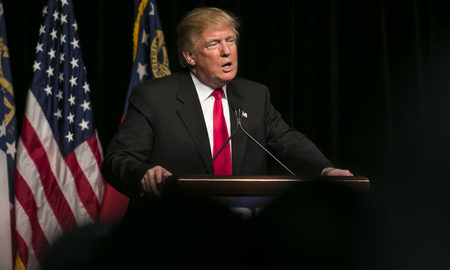The Donald Trump Presidency and Stem Cell Research: What to Expect?

Stem cell research is critical because it offers potential cures for diseases that are presently incurable. Stem cells are unique in human biology because they can generate various types of specialized cells that are necessary for the body to function and remain healthy.
Stem cells obtained from day-old human embryos are the most versatile of all. These microscopic clumps of undifferentiated cells are sourced from in vitro fertilization clinics that have access to unused, donated embryos.
In the United States, pro-life advocates oppose stem cell research on human embryos based on the premise that these embryos have the potential to grow into human beings. Stem cell advocacy groups, on the other hand, claim this research is necessary to save human lives. So where does the impending Donald Trump presidency leave stem cell research?
The Bush Presidency
In 2001, President George W. Bush provoked a charged ethical and political debate when he severely limited federal funding for human embryonic stem cell research. Scientists researching cures for degenerative diseases found themselves limited to a few existing cell lines. Researchers were forced to look at adult tissue as an alternative to embryonic stem cells.
The Obama Presidency
In 2009, President Barack Obama, within weeks of assuming office, lifted the Bush restrictions with an executive order, putting embryonic stem cell research back on track. Interestingly, current Vice-President-Elect Mike Pence, wrote a critical op-ed at the time, stating that the Obama decision was against the wishes of millions of Americans who look at life as a gift from God.
The Trump Presidency
President Elect Donald Trump has named Tom Price, an osteopath and Congressman from Georgia, as his choice to head the Department of Health and Human Services. The HHS oversees the National Institutes of Health. It is interesting that in the past Congressman Price has voiced concerns similar to those expressed by Governor Mike Pence.
Currently, the NIH funds embryonic stem cell research with nearly $200 million every year. This critical funding is unprotected by any legislation and it would only take a stroke of President Donald Trump’s pen to overturn it. This possibility has the stem cell research community holding its collective breath.
Any new funding restrictions from the Trump presidency could immensely complicate the scenario. Scientists are working in laboratories nationwide with different types of stem cells. New regulations may require them to separate their work with embryonic stem cells if federal dollars are funding their research. Shared costs, which were not an issue during the Bush-era restrictions, could further complicate matters and put the brakes on important research.
As Governor of Indiana, Vice-President-Elect Mike Pence worked to prevent research on fetal tissue. Opponents of this research argue that this leads to an increase in the number of abortions, but this claim is not supported by evidence. Advocacy groups for stem cell research claim this is nothing but a symbolic gesture.
During the presidential campaign, Donald Trump did not clearly declare his opinion on these issues, so it remains to be seen what his presidency will unfold. In the meantime, even as uncertainty prevails in the United States, across the border, Canada is forging ahead in the global race to develop innovative stem cell treatments.
References:
- http://www.theglobeandmail.com/news/national/canadian-stem-cell-funding-surge-underscores-us-uncertainty/article33089117/


